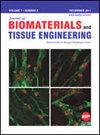The Mechanism Study of Single Nucleotide Polymorphism rs3094165 Regulating the Progression of Hepatocellular Carcinoma via Modulating NADH Dehydrogenase Ubiquinone Fe–S Protein-1
IF 0.1
4区 医学
引用次数: 0
Abstract
Hepatocellular carcinoma (HCC) is a major contributor to global cancer-related mortality, under-scoring the urgent need to identify effective prognostic markers. Single nucleotide polymorphisms (SNPs) play an increasingly important role in predicting the prognosis of patients with HCC. In this study, a cohort of 637 HCC patients was enrolled, and various online databases were comprehensively surveyed to identify SNPs that potentially impact HCC patient survival. The results of the Cox regression analysis demonstrated a significant association between rs3094165 and poor prognosis among patients with HCC. Further PSM analysis was also employed to control potential biases, and the results remained consistent. These findings suggest that SNPs can serve as reliable prognostic markers for HCC patients. Then, we conducted functional experiments to explore the molecular mechanism and confirmed that rs3094165 potentially regulates the progression of HCC by modulating the expression of the NDUFS1. Taken together, our study provides a comprehensive analysis of SNPs associated with HCC prognosis, and highlights the importance of rs3094165 as potential biomarkers for predicting poor prognosis of HCC patients. Our findings also shed light on the influence of rs3094165 on HCC progression by regulating NDUFS1 expression.单核苷酸多态性rs3094165通过调节NADH脱氢酶泛醌铁硫蛋白-1调节肝癌进展的机制研究
肝细胞癌(HCC)是全球癌症相关死亡的主要原因,因此迫切需要确定有效的预后标志物。单核苷酸多态性(snp)在预测HCC患者预后方面发挥着越来越重要的作用。在本研究中,纳入了637例HCC患者,并对各种在线数据库进行了全面调查,以确定可能影响HCC患者生存的snp。Cox回归分析结果显示,rs3094165与HCC患者预后不良存在显著相关性。进一步的PSM分析也用于控制潜在的偏差,结果保持一致。这些发现表明snp可以作为HCC患者可靠的预后标志物。随后,我们通过功能实验探索其分子机制,证实rs3094165可能通过调节NDUFS1的表达调控HCC的进展。综上所述,我们的研究全面分析了与HCC预后相关的snp,并强调了rs3094165作为预测HCC患者预后不良的潜在生物标志物的重要性。我们的研究结果还揭示了rs3094165通过调节NDUFS1表达对HCC进展的影响。
本文章由计算机程序翻译,如有差异,请以英文原文为准。
求助全文
约1分钟内获得全文
求助全文
来源期刊

Journal of Biomaterials and Tissue Engineering
CELL & TISSUE ENGINEERING-
自引率
0.00%
发文量
332
审稿时长
>12 weeks
 求助内容:
求助内容: 应助结果提醒方式:
应助结果提醒方式:


